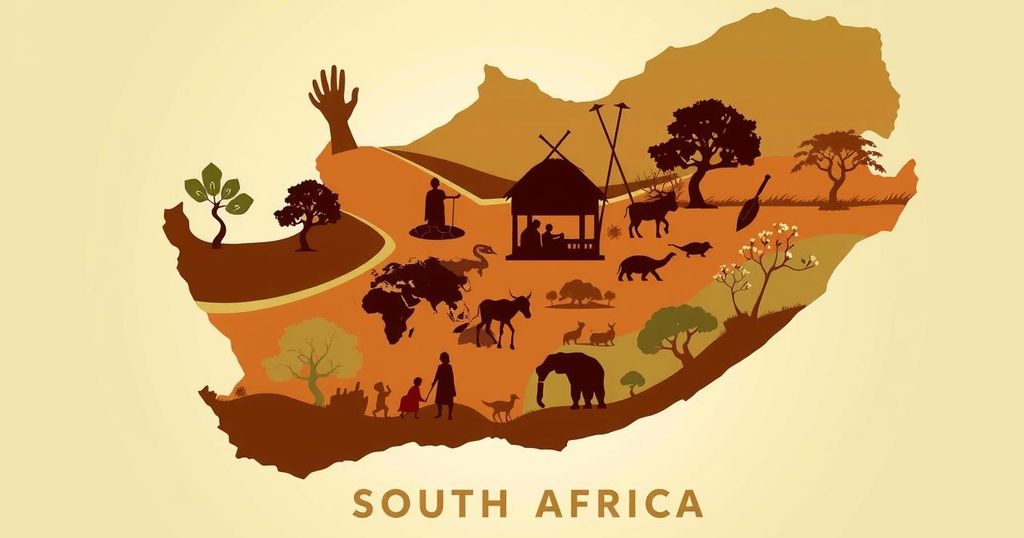Trump Facilitates Refugee Admissions for Afrikaners Amid Controversy

Trump welcomes about 60 Afrikaners as refugees amidst a refugee admission freeze, justified as a response to racial discrimination. South Africa’s government disputes this claim, arguing it misrepresents efforts to rectify past inequalities.
Fast Summary: President Trump has approved the arrival of about 60 white South Africans, specifically Afrikaners, as refugees amid his broader suspension of refugee admissions. This decision has been framed by Trump as a measure against racial discrimination. However, it has received condemnation from South African officials, who argue that this characterization misrepresents their country’s policies aimed at correcting apartheid-era inequalities.
Article Body: In a surprising turn, President Donald Trump has opened the doors to approximately 60 white South Africans, members of the Afrikaner ethnic group, as they are set to arrive in the United States on May 12. This decision comes despite Trump’s recent suspension of refugee admissions across the board. The administration has labeled these individuals as victims of racial discrimination. The Afrikaners, who descend primarily from Dutch colonists, comprise a small minority in a country where nearly 81% of the 62 million residents are Black.
Historical context is pivotal here. During apartheid, which lasted until 1994, South Africa’s white minority held extensive power, enforcing strict segregation and denying the majority of South Africans basic rights. However, today, many Afrikaners assert they face threats under new laws that authorize the government to reclaim land for what it deems “the public interest,” often without any compensation.
Trump’s support for this group traces back to his first presidential term, though it intensified significantly during his second term. He has accused the South African government of unjustly confiscating land and mistreating certain demographics of its population. This led directly to his decision in February to prioritize Afrikaners seeking asylum in the U.S.
“What’s happening in South Africa fits the textbook definition of why the refugee program was created,” White House deputy chief of staff Stephen Miller stated on May 9, labeling the situation a clear example of “race-based persecution.” Encouragingly, even prominent figures like Elon Musk, a South African native and Tesla CEO, have voiced their concerns regarding the Expropriation Act.
Despite these claims from Trump and Miller, South African President Cyril Ramaphosa has rejected assertions of land theft and racial discrimination, insisting the Expropriation Act is a necessary response to rectify the lingering inequalities rooted in apartheid’s legacy. Although apartheid officially ended over three decades ago, a study from The Africa Institute and the University of Zambia indicates that typical Black South African households hold merely 5% of the wealth of their white counterparts.
South Africa’s Ministry of International Relations dismissed the allegations of discrimination as baseless in a recent statement, suggesting that the resettlement plan appears to be politically charged. They cautioned against questioning South Africa’s commitment to democracy and its efforts to eliminate discrimination following years of entitlement associated with apartheid. Meanwhile, the U.S. Embassy in Pretoria is reportedly vetting applications from those interested in relocating, although a State Department spokesperson did not confirm an exact number for the refugees expected to arrive.
The anticipated arrivals will be marked by a news conference at Dulles International Airport, with officials hoping to underscore what they perceive as a humanitarian effort to assist a group that Trump claims is in dire need.
In conclusion, President Trump’s decision to accept Afrikaners as refugees highlights a complex intersection of race, history, and international relations. While framing them as victims of discrimination and persecution, South African officials assert the narrative is misleading and politically motivated. As approximately 60 Afrikaners prepare to settle in the U.S. amidst ongoing debates over land reform in South Africa, the impact on both nations remains to be seen.
Original Source: www.usatoday.com





